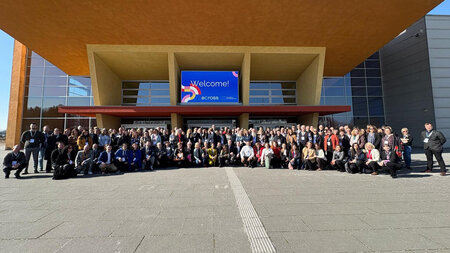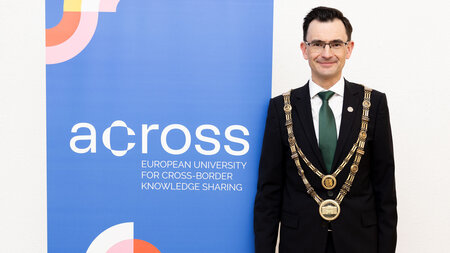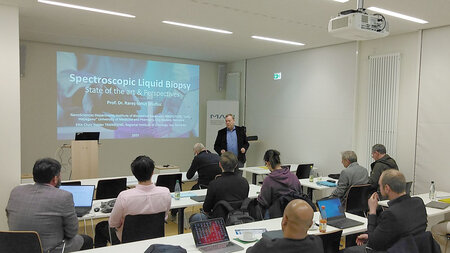EU funds Chemnitz University of Technology as part of an international consortium for research into charging infrastructure for electromobility with around 500,000 euros
Research Group Cognitive and Engineering Psychology investigates incentives for and barriers to the development of a user-friendly and sustainable charging infrastructure for electric vehicles in five EU countries as part of the collaborative project FLOW
-

Chemnitz University of Technology is part of the European FLOW consortium to explore possibilities for the development of an EU-wide charging infrastructure for electric vehicles. Photo: FLOW
The European Union (EU) aims to develop solutions to increase the share of electric vehicles in member countries through the Flexible Energy Systems Leveraging the Optimal Integration of EVs Deployment Wave (FLOW) project. For this purpose, the EU is funding an international consortium within the framework of FLOW, consisting of European research institutions, companies and associations from nine countries. A total of 30 partners are participating in the project. On the part of the Chemnitz University of Technology, the Research Group Cognitive and Engineering Psychology (Head: Prof. Dr. Josef F. Krems) is involved. In addition to Chemnitz University of Technology, other German partners include the RWTH Aachen University and BMW. The Catalonia Institute for Energy Research (IREC) is in charge of the consortium. The total budget is around ten million euros, of which around 500,000 euros are allocated to Chemnitz University of Technology. FLOW started in July 2022 and will run over a period of four years.
"As part of the EU-funded FLOW project, the Research Group Cognitive and Engineering Psychology is responsible for integrating user needs into smart energy concepts in order to optimize user satisfaction and ensure their active participation," said Prof. Dr. Josef F. Krems. Among other things, the operating and display concepts of the intelligent charging solutions will be evaluated for their acceptance and usability, and incentive systems for participation in controlled charging will be tested. The aim of the research contribution of Chemnitz University of Technology is to identify incentives and hurdles in the use of charging solutions. In addition, the researchers want to develop easily accessible charging and control solutions to give as many people as possible access to this technology.
To ensure that the team can collect sufficient data on different application scenarios, the researchers led by Prof. Krems are conducting research at five demonstration sites in the Czech Republic, Ireland, Italy, Denmark and Spain. The team is using a mix of methods including questionnaires, interviews, focus groups and usability tests. In this way, the researchers want to evaluate the requirements for the next generation of charging solutions, demands on the user experience, and criteria for acceptance and satisfaction.
For more information on the FLOW project, contact Bettina Kämpfe, e-mail bettina.kaempfe@psychologie.tu-chemnitz.de, and Madlen Günther, e-mail madlen.guenther@psychologie.tu-chemnitz.de.
(Translation: Brent Benofsky)
Matthias Fejes
22.09.2022





